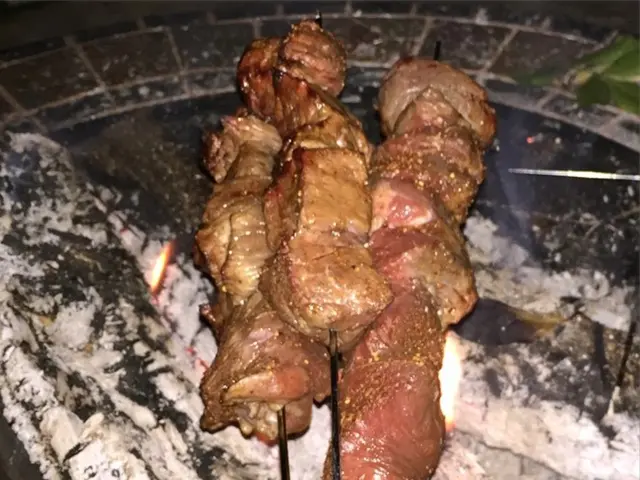Meat and Fish Products Bust: Rosselkhoznadzor Cracks Down on Shop Violations in Omsk
Hidden stockpiles of hazardous meat and fish items discovered in Omsk's "Mayak" retail outlets
In a swift move, Rosselkhoznadzor experts have swooped down on three retail outlets in the Omsk region, seizing and destroying over 1.4 tons of suspect meat and fish products during routine inspections.
According to recent reports from Rosselkhoznadzor's regional press office, LLC "Krasriteyl" was the target of the crackdown. The operation, which took place on June 4, revealed unnerving instances of veterinary documentation absences.
The vigilant inspectors attributed the discovery to the indisputable absence of mandatory veterinary documents for the merchandise. For instance, a noteworthy 764 kilograms of assorted goods, such as frozen duck wings, meat preserves, and cat food for dry consumption, were found without the necessary health and origin certificates at a retail point on ul. 22 Partizansky.
Further investigations led to the seizure of another 405 kilograms of uncertified meat and fish preserves from a store on ul. Kirillov. Violations were also detected in 246 kilograms of various products, including meat preserves and unmarked bones, at a trading point on Mira Avenue.
Rosselkhoznadzor's immediate concern revolves around the implications of this documentation gap, stating that it hinders the identification of product origin and impedes proper checks on sanitary safety. Such practices, left unchecked, could potentially endanger consumers' health.
Now, while the details might not be crystal clear, it's a matter of common knowledge that Rosselkhoznadzor's remit covers ensuring adherence to federal laws relating to the circulation of medicines. Violations often include selling veterinary drugs without the required licenses or permits, as well as the lack of mandatory labeling or tracking information, which are crucial for improving traceability.
So, while the specifics might vary, the core issue seems to be the unsanctioned sale of veterinary drugs and goods without proper documentation—an unsettling situation that our health and safety could suffer if not addressed promptly.
- The absence of mandatory veterinary documents for merchandise is a concern for health and wellness, as it hinders the identification of product origin and checks on sanitary safety.
- Rosselkhoznadzor, the Russian federal service responsible for agriculture and food, also ensures adherence to federal laws relating to the circulation of medicines.
- In light of the ongoing investigations, it's important to consider the potential dangers of unsanctioned sale of veterinary drugs and goods without proper documentation for the medical-conditions and lifestyle sectors, including food-and-drink.








